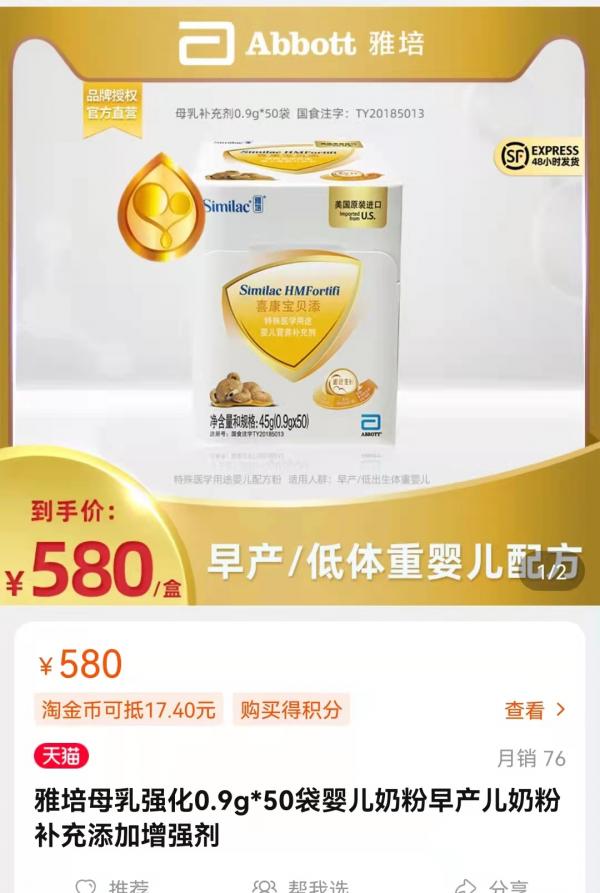After being complained about the product contamination, Abbott is recalling some formula milk powders worldwide.
Recently, the milk powder produced by Abbott was complained to the US FDA (Food and Drug Administration) by 4 consumers, and the content of the complaint showed that after the infant ate the milk powder produced by Abbott, there was a C. sakazaki (i.e., Enterobacter sakazaki) and Salmonella infections. In response, Abbott decided to recall globally infant formula produced at the Sturgis plant in Michigan, including similac, Alimentum and EleCare brands.
In this Abbott global recall, the factories involved have products circulating in the Chinese market.

The relevant person in charge of Abbott responded to the Nandu reporter that among the products that were actively recalled, in addition to the infant nutritional supplement Xikang Baby Tim, other nutritional products sold by Abbott China in the mainland were not affected.
According to public information, the recalled Xikang Baby Tim belongs to the special medical infant formula food in the mainland, and the applicable population is premature babies.
In addition to the recall of products, Nandu reporters noted that the products involved have been unable to retrieve on e-commerce platforms such as Tmall and JD.com, and related products have been removed from the shelves by the platform.
Abbott said in the recall announcement that the recalled product has a multi-digit number at the bottom of the container, starting from the first two digits 22 to 37, including K8, SH or Z2, and is valid for or after April 1, 2022.
At the same time, when the company inspected the factory involved, it found that Enterobacter sakazaki was found in non-product contact areas, but there was no evidence of salmonella. The company also said that none of the products it had distributed tested positive for related pathogenic bacteria, and in addition, the sample test related to the milk powder involved showed that Enterobacter sakazaki and Salmonella were negative.
According to Nandu reporters, Hanzaki Enterobacter and Salmonella are common contaminating bacteria in food, including infant formula, and are commonly found in living environments. Enterobacter sakazaki is prone to meningitis, enterocolitis and bacteremia in newborns, while Salmonella is prone to fever, diarrhea, abdominal pain and vomiting, which generally occur within 1 to 3 days of contact with the source of infection.
In fact, this is not the first time that Abbott's infant formula has had quality problems, and on May 16 last year, the company detected the ingredient vanillin that was prohibited from being added to the infant formula it produced.
According to Abbott's recent 2021 financial report, the company's full-year revenue last year was $43.1 billion, an increase of 22.9% year-on-year, and global sales of infant nutrition products attributable to the nutrition business increased by 3.1% year-on-year.
Affected by the recall, Abbott's U.S. stock price has closed down for two consecutive days, falling 3.14% at $116.79 in the last trading day.
Source: Southern Metropolis Daily Nandu reporter Beibei
Hot video recommendations
Case Warning Zone
The article reprinted by the pharmaceutical network | Enjoy sharing the circle of friends | Please contact the authorization for reproduction
Pharmacy Network
China's leading Internet pharmacist group